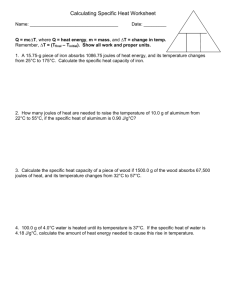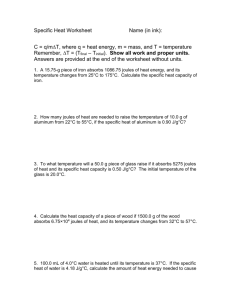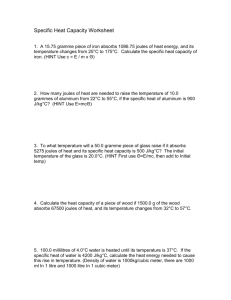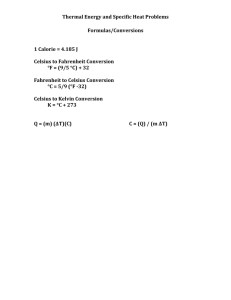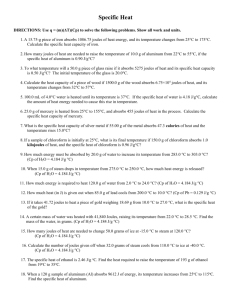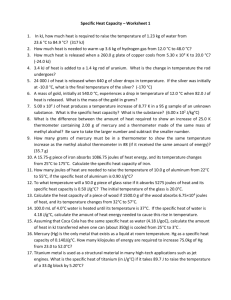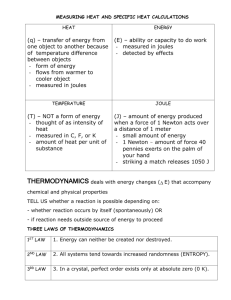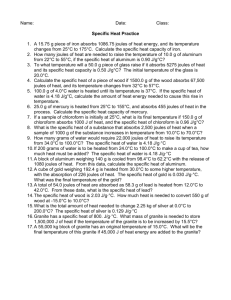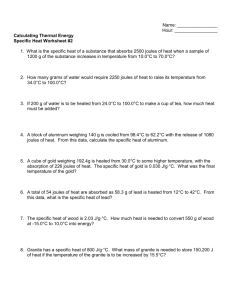FPS – Thermal Energy & Specific Heat Practice
advertisement
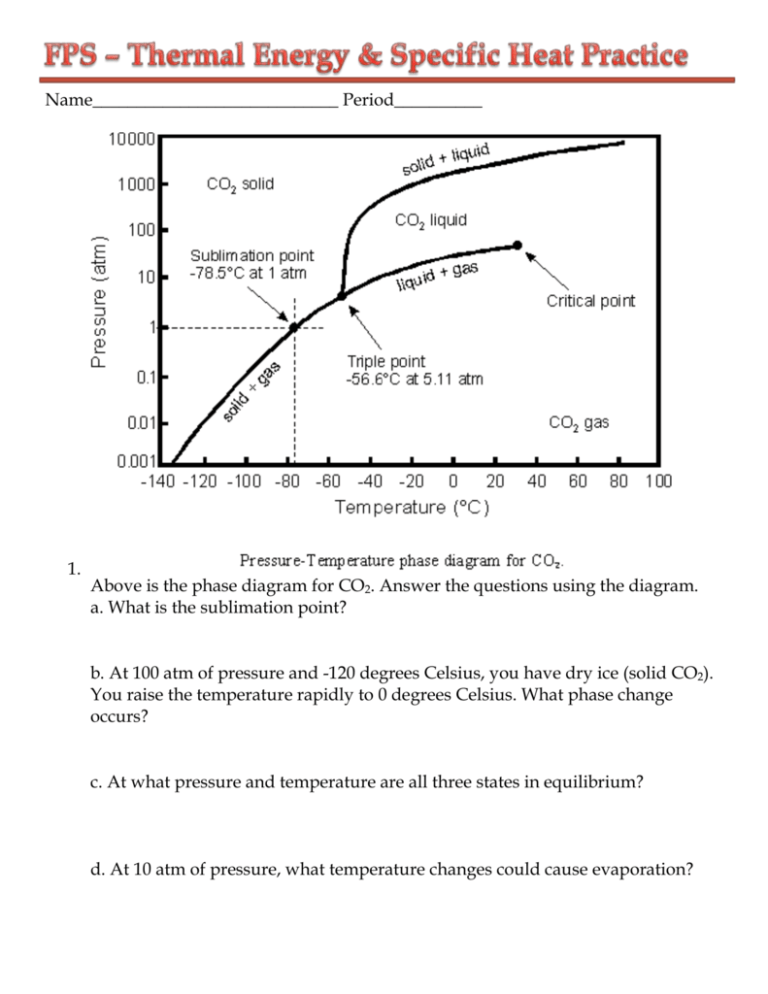
Name____________________________ Period__________ 1. Above is the phase diagram for CO2. Answer the questions using the diagram. a. What is the sublimation point? b. At 100 atm of pressure and -120 degrees Celsius, you have dry ice (solid CO2). You raise the temperature rapidly to 0 degrees Celsius. What phase change occurs? c. At what pressure and temperature are all three states in equilibrium? d. At 10 atm of pressure, what temperature changes could cause evaporation? 2. Label the heating curve below for water; indicate the states of matter for each diagonal line, the phase changes, and the temperatures for each. 3. Below is the formula for calculating heat. Label the variables and their units. Q = m c ΔT 4. Heat is not the same as temperature, yet they are related. Explain how they differ from each other. 5. Gold has a specific heat of 0.129 J/g°C. How many joules of heat are required to raise the temperature of 15 grams of gold from 22°C to 85°C? 6. An unknown substance with a mass of 100 grams absorbs 1000 J while undergoing a temperature increase of 15 °C. What is the specific heat of the substance? 7. If the temperature of 34.4 g of ethanol increases from 25 °C to 78.8 °C, how much heat has been absorbed by the ethanol? The specific heat of ethanol is 2.44 J/(g×°C) 8. Graphite has a specific heat of 0.709 J/(g×°C). If a 25 gram piece of graphite is cooled from 35 °C to 18 °C, how much energy was lost by the graphite? 9. Copper has a specific heat of 0.385 J/(g×°C). A piece of copper absorbs 5000 J of energy and undergoes a temperature change from 100 °C to 200 °C. What is the mass of the piece of copper? 10.45 grams of an unknown substance undergoes a temperature increase of 38 °C after absorbing 4172.4 Joules. What is the specific heat of the substance? 11.A 40 g sample of water absorbs 500 Joules of energy. How much did the water temperature change? The specific heat of water is 4.18 J/(g×°C). 12.If 335 g of water at 65.5 °C loses 9750 J of heat, what is the final temperature of the water? Liquid water has a specific heat of 4.18 J/(g×°C). 13.A 15.75-g piece of iron absorbs 1086.75 joules of heat energy, and its temperature changes from 25°C to 175°C. Calculate the specific heat capacity of iron. 14. How many joules of heat are needed to raise the temperature of 10.0 g of aluminum from 22°C to 55°C, if the specific heat of aluminum is 0.90 J/g°C? 15.To what temperature will a 50.0 g piece of glass raise if it absorbs 5275 joules of heat and its specific heat capacity is 0.50 J/g°C? The initial temperature of the glass is 20.0°C. 16. Calculate the heat capacity of a piece of wood if 1500.0 g of the wood absorbs 6.75×104 joules of heat, and its temperature changes from 32°C to 57°C. 17.100.0 mL of 4.0°C water is heated until its temperature is 37°C. If the specific heat of water is 4.18 J/g°C, calculate the amount of heat energy needed to cause this rise in temperature. 18.25.0 g of mercury is heated from 25°C to 155°C, and absorbs 455 joules of heat in the process. Calculate the specific heat capacity of mercury. 19.If a sample of chloroform is initially at 25°C, what is its final temperature if 150.0 g of chloroform absorbs 1.0 kilojoules of heat, and the specific heat of chloroform is 0.96 J/g°C?
